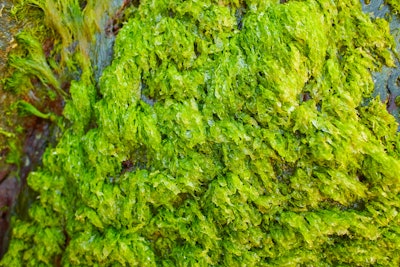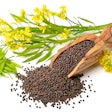
Aker BioMarine, a Norwegian company that manufactures and sells krill oil as an alternative to conventional fish oil products, has added algae oil to its line of products amid global developments that appear poised to make algae a mainstream feed and food ingredient, CEO Matt Johansen said in May.
The company introduced its newest product, an algae oil-based product it calls FloraMarine, at vitafoods Europe earlier this month, and has established a 100-metric-ton algae processing facility at an existing plant in Houston, Johansen said. But that's only the beginning, he said — the company hopes to reach 500 metric tons of algae processing over the next 6-9 months, and could easily expand from there if sales grow quickly.
Johansen said he actually expected algae to take off some ten years ago, and was somewhat surprised when it seemingly failed to live up to initial expectations. But several recent developments, he said, convinced the company that it was time to move into algae oil.
Aquafeed producers in particular have spent the last several years rationing fish oil and working out new formulas with ever-smaller proportions of marine ingredients. Lately, however, rising concern about fish health and welfare has caused inclusion levels to tick upward ever so slightly, Johansen said.
At the same time, he said, rising prices for fish oil and falling prices for algae mean algae oil is poised to achieve price parity with fish oil.
When that finally happens, Johansen said, it will open up a huge opportunity for algae oil — a sector where Aker BioMarine intends to become a leading player.
The company doesn't intended to produce algae itself, Johansen said. The collapse of demand for algae as a biofuel means there is currently plenty of available algae production capacity elsewhere. But Johansen sees a potential need in the market for algae processing capacity — something he believes Aker BioMarine is well positioned to offer, given its existing experience with krill processing.
The company's first sales of algae oil have gone into the human supplements market, Johansen said, but he believes there will be future opportunities to sell to the animal feed industry if prices for marine ingredients remain elevated.












